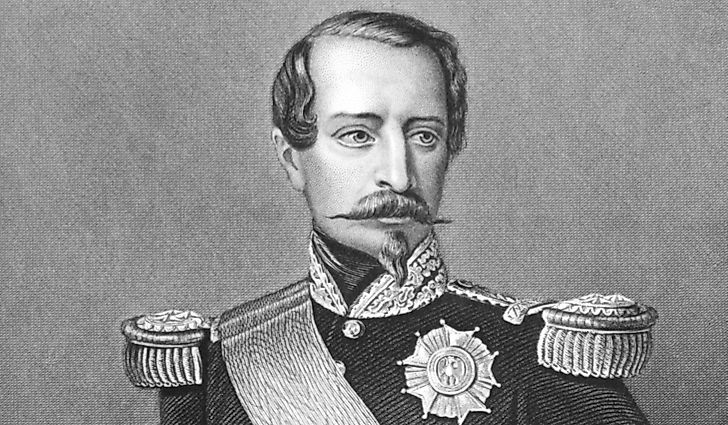Napoleon III - World Leaders in History

5. Early Life
Louis Napoleon, known as Napoleon III, was born on April 21st, 1808, in Paris. He was the nephew of Napoleon Bonaparte (Napoleon I) and, because of this, he was himself in exile after 1815, after the end of Napoleon I's reign. His father, Napoleon I's younger brother, had been King of Holland for several years in the early 19th Century. He grew up in Switzerland with his mother alongside him. He then settled in Italy, and became fascinated by history and national liberty, which further triggered his longing to win back the throne of his own country. While he was in Italy he joined the Carbonari, a revolutionist group resisting Papal and Austrian control over the country. He fled Italy when the troops began to crack down on revolutionary activities there in 1831. Almost dying during the escape, he was saved by the Austrian troops.
4. Rise to Power
Louis Napoleon thought himself to be the rightful heir to the French throne after his cousin, the Duke of Reichstadt, Napoleon I's only son, died in 1832. He engaged himself in military training and studies of economy and social problems to prepare himself for the throne. His coup d'etat in 1836 failed, and he was exiled to the U.S. and later on settled in England. At the same time he became devoted to writing, and attempted to transform Bonapartism into a political ideology, and portrayed himself as the best person to further it. His chance finally came when revolution broke out in 1848. The election for the Presidency of the Second Republic was held in 1848, and Louis Napoleon won in a landslide victory. Unsatisfied with the term limitations of the French Presidency, he seized dictatorial power in 1851, and crowned himself as Emperor Napoleon III in 1852. In doing so he effectively ended the French Second Republic and started the Second French Empire.
3. Contributions
Taking presidency at a chaotic time, Napoleon III carried out a series of reconstruction programs and reforms that modernized France and reasserted France's international status. In the realm of domestic policies, he modernized the banking system, promoted public works, fostered the construction of crucial industries, and bettered French agricultural practices. He also the lowered prices for products necessary to meet people's basic needs, and provided sanitary housing for workers. These policies objectively improved the basic living conditions, and at the same time saw France grow into a more modernized country. Internationally, he formed an alliance with the Great Britain to stop Russia's expansion into Europe, and increased French influence in Europe, which culminated in the Paris Peace Conference of 1856, in the process reshaping Europe.
2. Challenges
Despite the many positive changes that occurred during Napoleon III's reign, there were also many challenges that he struggled to handle. A deterioration in the economy caused uprisings among the middle- and working-classes peoples. Thereafter, they joined the Catholics, who were unhappy with the decreased influence of Catholicism under Napoleon, in order to become a strong oppositional force against him. The merchants were also dissatisfied because he had reduced tariffs on British products and thus reduced the competitiveness of French goods. Meanwhile, it was during Napoleon III's reign that the German Kingdom of Prussia started to arise as greater world power. France lost in the Franco-Prussian War, and Napoleon III himself was captured by the Germans in 1870. The Third Republic was henceforth declared and the French Monarchy abolished, and he would live in England thereafter until the time of his death.
1. Death and Legacy
Napoleon III died on January 9th, 1873, in Chislehurst, London, England after an operation to extract bladder stones. He is remembered as one of the most complicated and highly controversial figures in history. On the one hand, people recognize the positive influences his reforms, especially in social policies and economic policies, brought to ordinary French people. On the other hand, however, he is often viewed as a dictator who usurped power illegitimately and prevented the development of democracy and popular sovereignty in modern France. He has also been criticized for being aggressive and bellicose. Further still, his writings and personal reflections on politics are interesting products of his life experience, that continue to provide insight into the socioeconomic and political atmospheres of his day and age.











